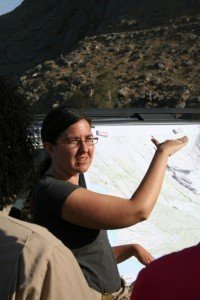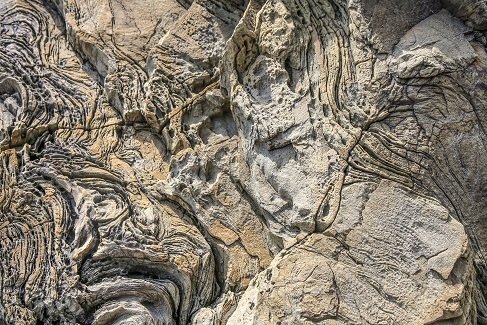Never heard of a petrophysicist before? Discover what they do, the education required to become one, and how you can break into this and other careers in the energy industry.
 Have you ever stopped to think about all of the things that need to happen to get electricity into your home, fuel into your car, and power your devices? There are some incredible STEM careers in the energy industry, a sector that is projected to grow along with the population that depends on it for power. STEM Jobs had the opportunity to speak with Anne Draucker, a senior petrophysicist at Chevron, to find out about this exciting career and the future of the energy industry.
Have you ever stopped to think about all of the things that need to happen to get electricity into your home, fuel into your car, and power your devices? There are some incredible STEM careers in the energy industry, a sector that is projected to grow along with the population that depends on it for power. STEM Jobs had the opportunity to speak with Anne Draucker, a senior petrophysicist at Chevron, to find out about this exciting career and the future of the energy industry.
STEM Jobs: What sparked your interest in pursuing a career in energy?
I actually had no intention of going into energy initially! I got a Chevron internship one summer though, that I thought would be good experience, and ended up LOVING it. I had to use all the skills I’d gained in school, apply them to real problems, work with an interdisciplinary team of smart people, pitch my project to a board, etc. Then at the end of the summer, the project I proposed actually got done, which meant I got to see if I was right or not almost immediately! That idea of testing, revising, trying again, with real results, was what sold me. That, and the cool computers. I felt like I was doing video-game geology.
SJ: What type of education is needed to be qualified as a petrophysicist?
Anne: At least a master’s degree. Many petrophysicists have PhDs in physics, geology, or engineering. I’ve also completed a 2-year intensive internal training program specifically for petrophysics.
SJ: What experiences did you have that were the most valuable on your path to your current career?
Anne: All of my most valuable experiences are times when I’ve been open to trying something scary that I thought I wasn’t qualified for. I’ve applied for or taken jobs when I did not have the skills to do it yet. I’ve succeeded at those jobs by admitting to myself and my mentors that I didn’t know everything (or anything!), and I was going to need lots of ongoing help. I try to stop myself from saying “I don’t know how to do that.” Instead, say “I don’t know how to do that YET. But I will!” then track down all the people who do know, and pester them. 😀 So, be open, but be stubborn, too.
SJ: What is your current role, and what all does that encompass?
Anne: I’m a petrophysicist, which means I study the physics of fluids in rocks. In a practical way, that means I look at well logs, core data, and other readings taken after wells are drilled, in order to calculate the properties of the rocks and how much oil and water is in the subsurface.
SJ: What STEM skills are required as a petrophysicist?
Anne: All of them! Geology, chemistry, lots of physics, math, of course. You need to understand what the rocks and fluids could be doing, what the physics of the log responses could mean, and calculate properties. But the most important part is being able to synthesize all the different parts into something new. So creative thinking is vital. I also need computer, people, and communication skills.
SJ: What professional accomplishments are you especially proud of?
Anne: I’ve gotten to do lots of things in the last decade. I’ve worked up good projects, and executed them under budget. I’ve received tons of training and learned a million things. But the times I feel proud are when I teach a class that I’ve designed myself, and I see people excited about the material and using what they learned.
SJ: What is the most challenging/rewarding part of your job?
 Anne: Teaching and puzzle solving! I get posed some tricky technical challenges sometimes. I thoroughly enjoy figuring those out, then I have to communicate back to the teams I work with. I also teach several classes. Trying to explain things that make perfect sense to me, because I’ve been learning it for years, to someone who has never encountered the basic concepts is challenging AND rewarding.
Anne: Teaching and puzzle solving! I get posed some tricky technical challenges sometimes. I thoroughly enjoy figuring those out, then I have to communicate back to the teams I work with. I also teach several classes. Trying to explain things that make perfect sense to me, because I’ve been learning it for years, to someone who has never encountered the basic concepts is challenging AND rewarding.
SJ: What are some of the different STEM roles available at Chevron?
Anne: Chevron has SO many options! Geologists, for example, work at every level of the energy process. We’re involved in exploring for hydrocarbons, working up prospects for drilling, helping execute wells, assessing developed/existing areas and wells, monitoring ongoing projects, coming up with new ideas for old areas – basically there are cool rocks everywhere with different challenges! Some geologists choose to be generalists and do a little of everything. Some, like me, choose to specialize in something they find particularly interesting. We also employ many kinds of engineers, chemists, biologists, mathematicians, physicists, programmers, etc.
SJ: What do you see as the future of the energy industry?
Anne: Bright, but complicated. Fossil fuels aren’t going away, but hopefully we all get better at conservation and efficiency. I work HARD to get hydrocarbons for the world in the most responsible manner I can, so I’m a bit offended when people waste them! I think that within Chevron, we’re going to keep doing what we’re doing, which is hiring people who care, and finding energy in new and old places in the most efficient and responsible way we can! Looking around at my coworkers gives me confidence that we’ll keep doing things the right way.
SJ: What advice would you give to high school students who are interested in a career in the energy industry?
Anne: Get good grades! Talk to people already in the industry. Take lots of science classes, but also take plenty of art classes. The energy industry needs people with solid STEM skills who can think creatively. Make stuff. Then break it. Then make better stuff.
If the energy industry sounds exciting, but you’re not sure that becoming a petrophysicist is the right fit for you, check out our interviews with a production engineer and lead system engineer!







Leave A Comment
You must be logged in to post a comment.